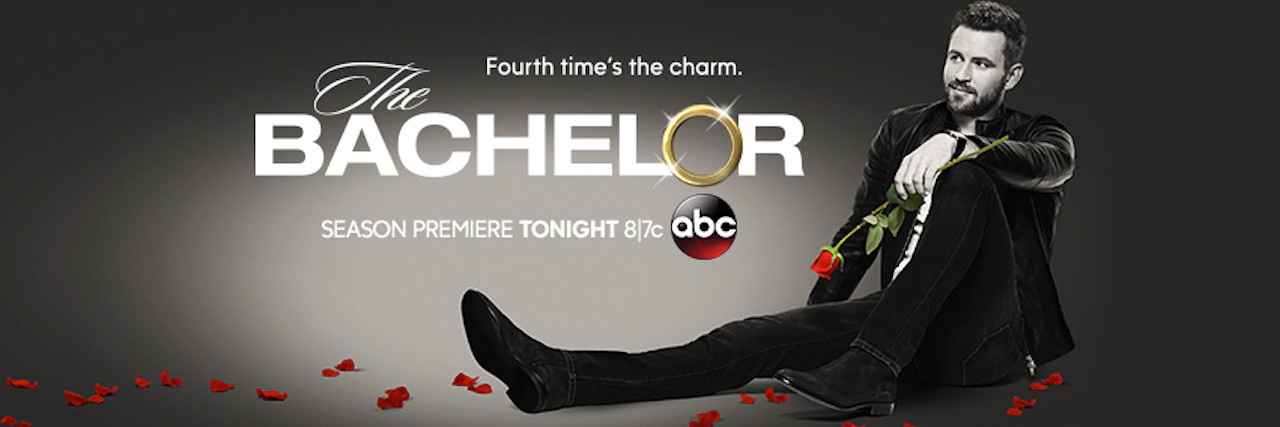Last Monday night, I, like many others, was engrossed in the latest episode of “The Bachelor.” I eagerly watched this year’s bachelor, Nick Viall, hand out roses to the women who have won his heart — until he spoke four simple sentences that instantaneously made my “rosy” attitude disappear.
“I’ve thought a lot, coming into this week, just how crazy I was in these two weeks. I had anxiety, I had mild panic attacks… I mean, I drove myself insane.”
Anxiety. Crazy. Panic attacks. Drove myself insane.
The weight of these words hit me hard. My heart raced. I could barely breathe. I immediately felt sick to my stomach.
I have anxiety — Am I crazy? I have had panic attacks… Am I supposed to believe that I am insane?
Society has long utilized the words “crazy” and “insane” to reinforce the negative stereotypes surrounding mental illness. The word “crazy” conjures up images of violence, aggression and instability, and — in both everyday conversation and in the media — it is primarily used to derogatorily describe a person’s mental state. “Insane,” by contrast, originated as a legal term, but it has devolved into a word widely used to disparage those living with mental illness. Tying loaded, derogatory language, such as the words “crazy” and “insane,” to mental illness — as “The Bachelor” did — perpetuates the harmful stereotype that people living with mental illness are violent, aggressive, incompetent and unstable.
The chaotic, disorderly picture these words create does not represent the reality for the vast majority of people living with mental illness. People with a variety of mental illnesses — including anxiety disorders, major depressive disorder, bipolar disorder, schizophrenia and dissociative identity disorder — are able to lead stable, successful lives. They attend college and graduate school, have careers in a wide variety of fields, get married, own homes and care for their children. Despite the widespread view that people with mental illness commit acts of violence, particularly in workplace settings, research not only suggests that they are more likely to be victims of violence than perpetrators of aggressive acts, but that a significant proportion of people with mental illness has been victimized more than once. The words “crazy” and “insane,” as well as similar language, not only serve to reinforce the deleterious stereotype that people with mental illness are too unstable to succeed in society, but they perpetuate the cycle of violence against those who live with mental illness.
Therefore, it is crucial to be cognizant of the way in which the language used in the media can powerfully reinforce negative stereotypes surrounding mental health conditions. By insinuating that experiencing anxiety is “crazy” and having panic attacks drove him “insane,” Nick Viall inadvertently perpetuated the notion that people with living with anxiety and panic disorders are unstable, out-of-control and potentially violent, due to the connotations of the words he chose to describe his anxious mental state. Those who viewed this particular episode of “The Bachelor” received confirmation of the deeply-entrenched but highly misleading stereotype that people with mental illness — particularly those living with anxiety disorders — exist in a constant state of instability and chaos and are unable to function in society. Presenting this type of language as an acceptable way to describe mental illness not only perpetuates the stereotypes surrounding mental illness, but by seemingly lending credence to the harmful perceptions of those with mental illness, it also further marginalizes those living with mental health conditions.
It is important for everyone in our society — regardless of background or social status — to choose language wisely, particularly as it pertains to describing symptoms of mental illness. A young professional experiencing anxiety symptoms before a job interview is not “crazy.” A man having panic attacks while attempting to find love on national television is not “insane.” Words have the power to either reinforce or dispel the stereotypes surrounding mental illness and, therefore, to influence future perceptions of those living with mental health conditions.
It is imperative that we think before speaking.
It is crucial that we speak with care and deliberation.
We have the power to create a world in which people with mental illness are no longer oppressed by negative stereotypes.
We must choose our words wisely.
We want to hear your story. Become a Mighty contributor here.
Image via The Bachelor Facebook page

